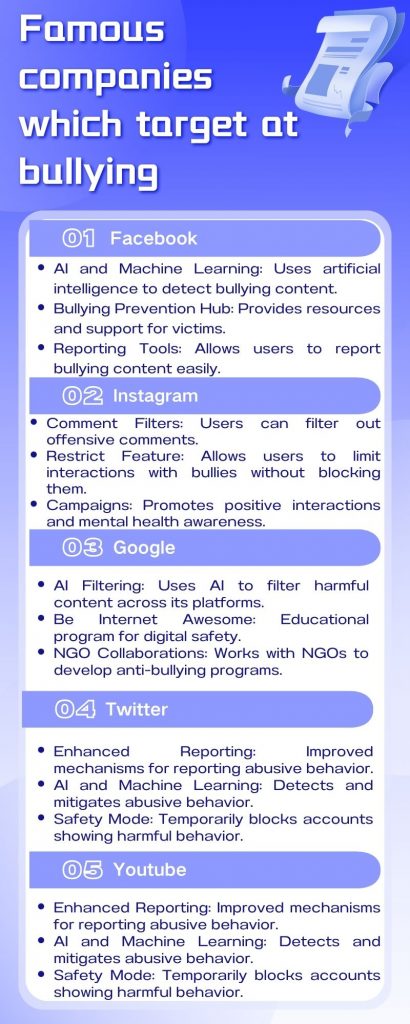In China there are hundreds of young people who are attracted to the seemingly glamourous world of instant online sales, livestreaming to sell products to their followers. But with reports of pressurized and abusive work practice, what needs to happen to protect this group of ambitious live streamers?

On the afternoon of 27 June, a live streaming accident happened in ChiceCream’s broadcast room. A female live streamer suddenly fainted during the live broadcast, in the meanwhile, she was still saying her liners to introduce products. And the scene of the staff screaming, triggering a large number of netizens attention.
The live streamer Tiantian was quickly introduced products in ChiceCream’s live room, and suddenly her body began to uncontrollably sway around, arm subconsciously support desktop. She soon lost balance and fell off, the chair behind was brought down.
She was rushed to the hospital for a physical examination as soon as she fell down. After she regained consciousness, she said, “I passed out because I felt unwell during my period. Plus, the weather in Hangzhou was so humid that it made me faint.”
Fainting at work is not uncommon, but Tiantian fell in front of thousands of live viewers, sparking considerable public attention. The incident caused growing concern to question whether the fainting of the live streamer was due to being pressurised by the company.
A streamer’s performance is often achieved through tremendous effort and hard work, but behind this lies extreme physical and mental exhaustion.
According to industry analysis, streamers often sacrifice their rest time in pursuit of high performance, which not only affects their health but also leads to an imbalance between work and life. Streamer Jesse said, “Sometimes I really feel like I’m so exhausted that I can’t breathe, but I can’t stop working because I need to cover my expenses.”
Working as a live streamer, Jesse has spent the last five weeks learning to sell products online. She would work in two hour shifts and today she has just hit her record sales having sold over 1500 units of cosmetic products to her audience of 160 thousand followers.
Jesse’s live stream gradually quieted down as she leaned back in her chair, her eyes revealing a deep exhaustion. At this moment, her heart was unusually heavy.
Every time she goes live, she has to face countless viewers, answering their questions and showcasing her products, as well as dealing with all sorts of unexpected situations.

Her own longest live broadcast was 13 hours, and after five hours sleep, she need to prepare for the streaming in advance for two hours to set the live room, camera and her make up. “I felt like I was constantly streaming and needed to maintain an engaging role for the audience while fulfilling the requirements of my employer.” Jesse said.
Jesse’s experience is a microcosm of the live streaming industry. She said, “The streamer’s work is divided into various kinds such as daily streaming which is daily live streaming, and special streaming which is live broadcasting for special shopping festivals. Most of the prime time for live streaming is time when other people get off work or other resting time.”
For example, baby products are generally streamed between 6 a.m. and 9 a.m., so Jesse needs to get up around 4 a.m. to prepare.
This demanding schedule leaves little room for breaks, impacting their mental and physical health. “Just thinking about getting up so early gives me stress. Even though I’m very tired at night, I find it hard to fall asleep. It’s really frustrating,” Jesse said.
According to labor laws, extended working hours may violate legal regulations on working and rest times.
Newly recruited live streamer Xiao Xin expressed dissatisfaction with her company. The company requires them to stream at least 26 days a month, with a “valid streaming duration” of 130 hours. Xiao Xin said, “Meeting the required streaming hours in the contract is almost an impossible task.”
Some livestreaming companies don’t calculate streaming time simply by counting the total hours streamed. Instead, they factor in metrics such as the number of viewers, interactions, and the amount of tips received. Xiao Xin said, “Only when certain criteria are met does the time count as ‘valid streaming duration.’ Often, after streaming for four hours, only two hours are considered valid.”
Moreover, time spent on tasks like equipment setup before streaming, shooting short videos, and attending training sessions is generally not counted as part of the streaming time.
While the company’s requirements may seem like an average of five hours of streaming per day, in reality, it could mean working for more than ten hours a day. Xiaoxin said, “It’s common to stay up late for livestreaming or work continuously for several hours, and over time, it really takes a toll on your body.”
However, this is often overlooked in the live streaming industry. The human resource manager Julianne of Mango Entertain Company said, “We recognise the work pressure and tiredness associated with long hours of live streaming for lead live streamers, so we have adjusted our work schedules to ensure that our live streamers have enough time to rest.”

Although the company set some policies to protect those live streamers, they still face problems.
What’s more, A flexible live streaming schedule is far not enough to take care those live streamers. Chenqi Lin is a young selling live streamer who often streaming for long periods of time in order to increase her sales.
To broadcast live during the best traffic hours, she often adjusts her working hours, resulting in irregular diet. Although the company provided a rest area, it was not mandatory for live streamers to take breaks.
Eventually, Chenqi was sent to hospital due to overwork and had to take a break from work. The company only realised after the incident that it needed to enforce a stricter health break regime, but it was too late, and her health had already been seriously damaged.
After being hospitalized due to overwork, Chenqi began negotiating with the company about her work situation. She first explained her health condition to the company, hoping to get some time off for rest and adjustment. Initially, the company expressed understanding and promised to consider her request.
However, due to the nature of the live streaming industry and the operational needs of the company, Chenqi found that the company did not take effective measures to reduce her workload. Instead, they placed higher demands on her streaming hours and sales performance.
In the following weeks, Chenqi said, “I tried multiple times to communicate with the company, hoping to find a solution that would ensure my health while maintaining my job. I have suggested adjusting streaming schedule and reducing the frequency of my broadcasts, but the company was not receptive and insisted me to complete the set streaming tasks.”
As her health continued to deteriorate, and with the company failing to provide a reasonable work adjustment plan, Chenqi’s condition did not improve significantly. She was left with no choice but to make the difficult decision to resign.
Although resigning brought uncertainty to her life, she said, “I believed that protecting my physical and mental health is more important than working in a company which just focuses on earning money.” In addition to health conditions, the balance between family and work is also a big issue.
Jiaying Xu is a very popular live streamer with 1.5 million followers, but as live work takes up a lot of her time, she has little time for her family. Jiaying said, “Initially, I loved the thrill and feeling of achievement from live streaming. But over time, I’m exhausted and have no energy for family. Feeling tired all the time and so alone really got me thinking.”
The long hours of work and family detachment made her feel extremely tired and lonely. She had applied to the company for flexible working hours, but as the company refused. She said, “I tried to communicate with the company. I suggested reducing the frequency of my live streams or streaming during non-peak hours, hoping to find a compromise. But the company seemed unwilling to make any concessions.”
Eventually, in order to balance her family, Jiaying had to leave the company and look for a job that was more family friendly. Jiaying says, “Companies would say they were good for the well-being of their employees, but in reality they were only looking for benefits and not really trying to help their employees. That was the root cause of my departure.”

CEO of Mango Entertainment, Kai Zheng expressed his regret to lost such a live streamer with so many followers. He said, “We know that live streamers are under immense pressure. Those live streamers’ situation is not an exception. That’s the reason why we take the mental health and physical situation of our live streamers very seriously.”
He explained their solutions towards looking after live streamers’ mental health in details. He said, “To this end, we have a dedicated mental health team and offer regular mental health checks and counselling. We also encourage live streamers to use our staff hotline when needed to ensure they receive timely support.”
Live streamers work under a lot of pressure and through these measures they hope to help them cope better with stress. Kai said, “We totally understand how tough live streamers is, but to be honest, live streamers must earn enough money to cover the expenses of psychological consultant.”
This profit-oriented company system not only brings huge work pressure to the streamers, but also does not take good care of the their mental health problems. This increases the instability and unhealthy competition in the industry.
The live streaming industry has had a multifaceted impact on young live streamers. In July 2023, according to China Youth reports, Manman worked as a live streamer and in an operations role at a food company in Liaoning Province.
Later, due to the company’s adjustments to its live streaming projects, Manman applied for resignation, leading to a dispute between the two parties over unpaid wages prior to her departure.
During her employment, both parties signed an agreement stipulating an 8-hour workday, but the wages she received only accounted for 6 hours of work. This did not match the actual working hours. Manman said, “In addition to the 6 hours I spent live streaming each day, I also had to prepare for product shipments, update logistics information, shoot, edit, and post videos, and respond to user inquiries. In reality, my average daily working hours amounted to 8 hours.”
Additionally, according to a report by The Paper, a 22-year-old female live streamer passed away suddenly due to illness after working consecutive nights of overtime.
This incident has drawn attention to the work intensity and working hours system for workers in new forms of employment. Hui Wang, a consultant for the live streaming industry union, suggested, “There should be corresponding working hours regulations and labor quota standards designed specifically for streamers to ensure reasonable working hours and rest time for live streaming sales personnel.”
In a labor law supervision notice issued by the Guangzhou Workers’ Union, it was also mentioned that e-commerce live streaming companies should legally sign written contracts with workers, clearly defining the rights and obligations of both parties to protect the legal rights of workers. Hui said, “It is necessary to improve legislation to guide and urge companies to regulate employment practices, thereby promoting the enforcement and protection of live streamers’ legal rights.”
Workers’ Daily reported that a streamer signed an acting contract with an entertainment company. He only earn 300 pounds per month in over five months but he need to pay 100 thousand pounds for breaking the contract.
Because the length of his live broadcast did not meet the minimum time limit requirements agreed in the contract, the company demanded that unachievable number in liquidated damages on the grounds of serious breach of contract.
In response to a case, Xue Jun, a professor at Peking University Law School, said in an interview with Xinhua Net that “Employers shouldn’t put unreasonable burdens on workers who are not capable of bearing them.”
With live streamers in a vulnerable situation, “The relevant management authorities need to issue appropriate guidelines to clarify the basic rules for calculating working hours in the network live streamer industry.” He added.
As the industry continues to grow, the focus on the health and rights of live streamers is still a problem needed to be looked after. Jesse said, “I hope that someday, I can be protected as a live streamer by a well-developed system and will no longer be in isolation when under pressure.”

